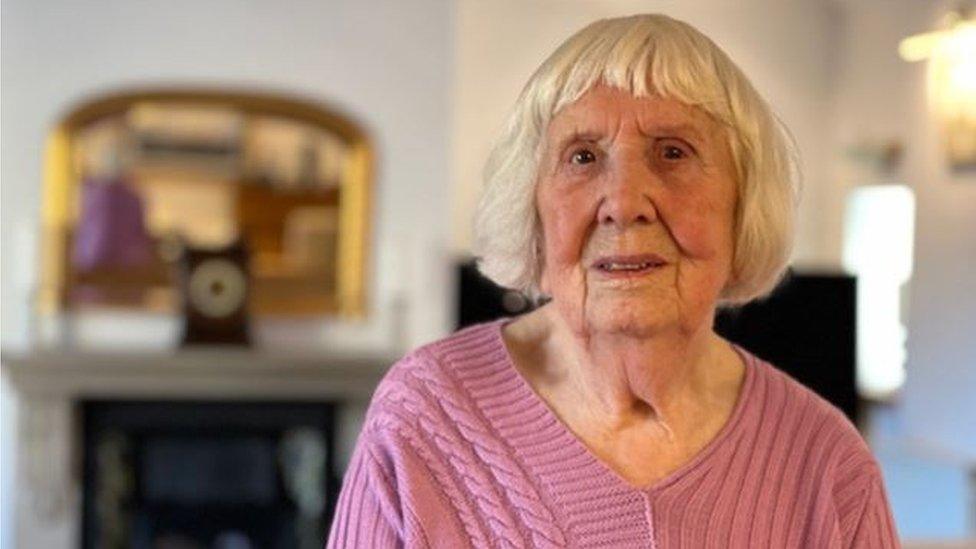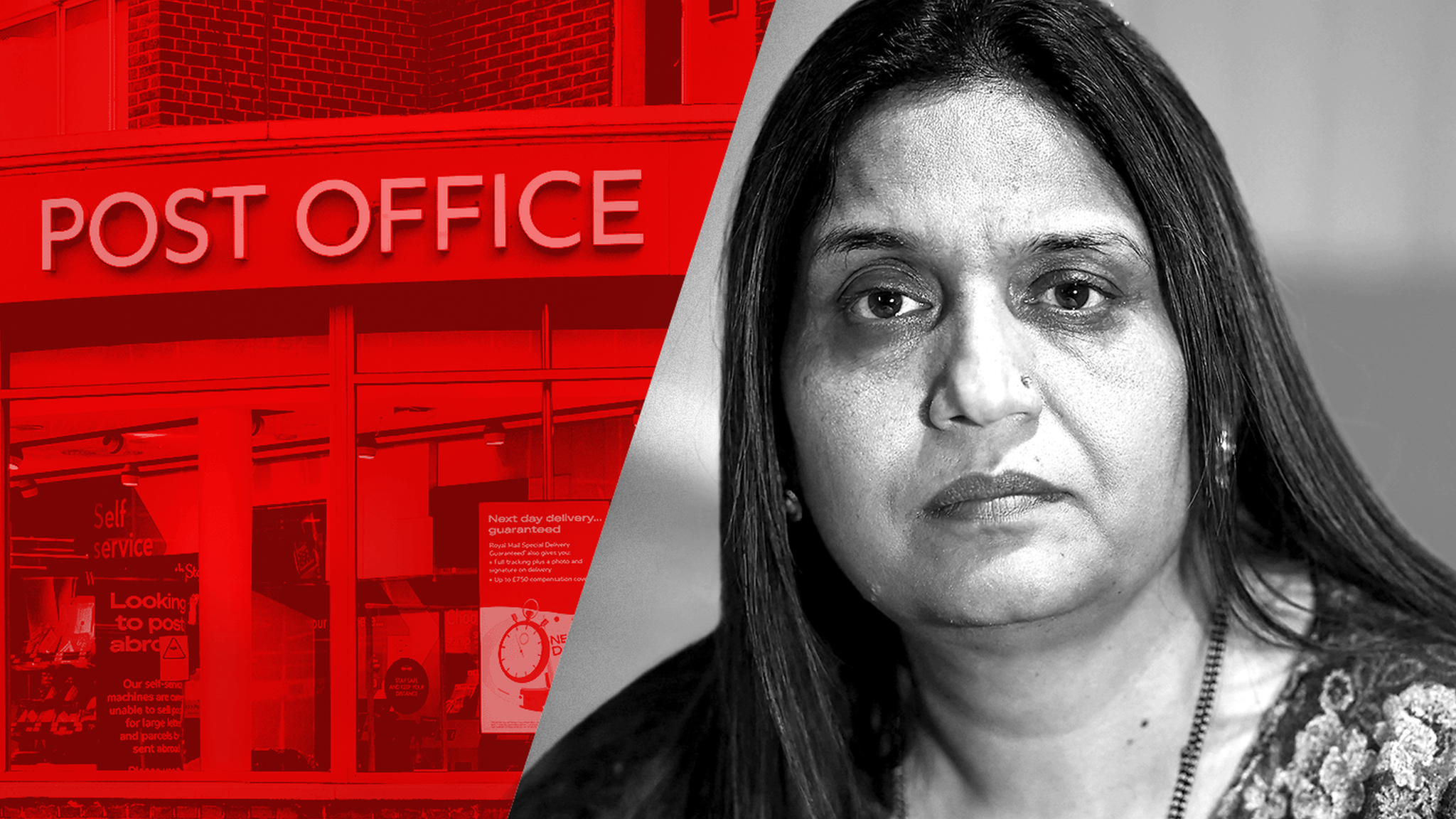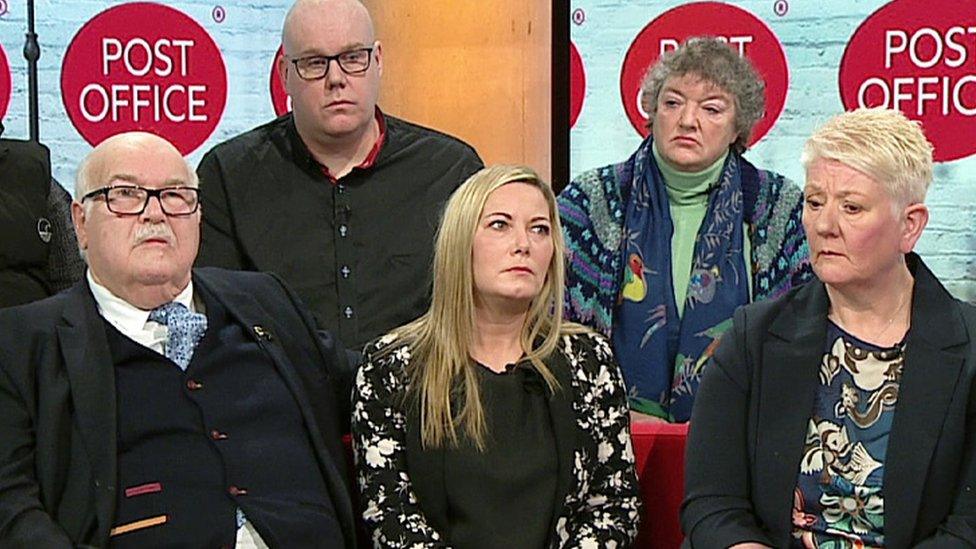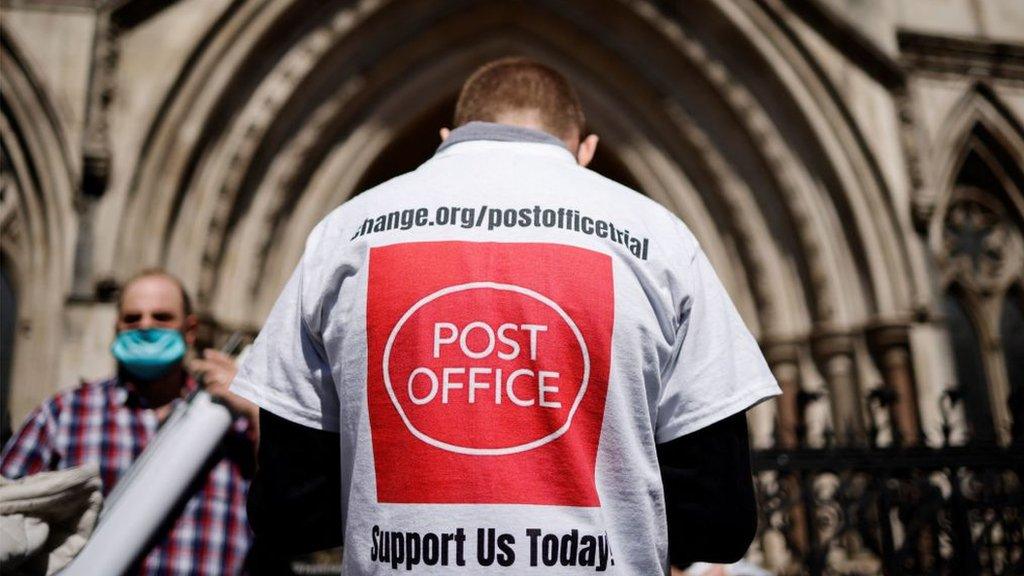Post Office scandal: 91-year-old victim 'disgusted' with compensation delay
- Published

The oldest victim of the Post Office scandal has said she is "disgusted" with delays to compensation.
Betty Brown and her husband spent more than £50,000 of their savings to cover money that faulty software made look like it was missing from their branch.
Mrs Brown, 91, told the BBC she needed redress now. "Today would be good."
Chancellor Jeremy Hunt told the BBC that the government will "find the money more quickly" for sub-postmasters who are yet to receive compensation.
He added there would be "no waiting" for those like Mrs Brown.
Speaking to the BBC's economics editor Faisal Islam at the World Economic Forum in Switzerland, Mr Hunt said: "We, as a government, are very proud of the fact that we set up a public inquiry in 2020, something no previous government had done, and we are now going to make sure that compensation gets out as quickly as we can."
More than 900 Post Office workers were prosecuted for theft and false accounting over a number of years based on evidence from faulty software called Horizon.
The scandal has been described as the biggest miscarriage of justice in UK history.
Located in a former mining village, Mrs Brown's Post Office in Annfield Plain in County Durham had been named as one of the area's most successful branches, vying with larger ones in Consett and Chester-le-Street.
But the retired branch manager said her life changed after the Horizon IT system was introduced in 2000.
'Absolute torment'
With computer terminals installed in more than 17,000 Post Office branches around the UK, Horizon was described as "the biggest non-military IT project in Europe" at the time, designed to automate and simplify everything from selling stamps to paying pensions.
But over a few years, Mrs Brown says her branch had gone from making a profit to making big losses.
When Horizon was first turned on in her branch it showed a deficit of £500.
Afterwards, it regularly came up £1,500 short.

Betty and Oswall Brown made up the shortfalls in the accounts with their own money
Initially she was reluctant to tell her husband Oswall, an ex-military policeman, about the losses, and used to lie awake at night, trembling and putting a sheet between her teeth to stop them chattering.
"Inside was torment, absolute torment," she said. "It changed me from being a happy, outgoing person into someone who is absolutely tied up in knots inside, shaking."
Although Mrs Brown and her husband covered the shortfalls from their retirement savings, she says she was eventually forced out of her business by a Post Office manager.
The manager thought she was "too old", and wanted "new blood", Mrs Brown said.
After all the investments they had made into her business, she said they were left with the "lickings of a dog" and felt it was "a kick in the teeth".
Her husband's cancer went into remission, but she is convinced the stress of having to deal with the situation made it come back, hastening his death.
"They sent my husband to the cemetery early," she said.
Mrs Brown says she wants full repayment for all the expense she was put through.
Asked if she was fed up with how long it was taking to get compensation, she said: "Yeah. I'm disgusted. I'm disgusted that they can sit day in, day out, knowing what they did was wrong. And not recognising the damage that they have done to every sub-postmaster and every family connected to it.
"How can these people sleep in their bed at night?"
There are several government compensation schemes for those affected by the Horizon scandal.
As of 11 January 2024, about £153m had been paid to more 2,700 claimants across three schemes, according to government figures, external.
A Post Office spokesperson said: "We are deeply aware of the human cost of the scandal and are doing all we can to right the wrongs of the past, as far as that is possible. Both Post Office and Government are committed to providing full, fair and final compensation for the people affected.
"To date, offers of more than £138m have been made to around 2,700 postmasters, the majority of which have been agreed and paid. Interim payments continue to be made in other cases which have not yet been resolved. We encourage those affected who have not yet done so to contact us."
Related topics
- Published17 January 2024

- Published10 January 2024

